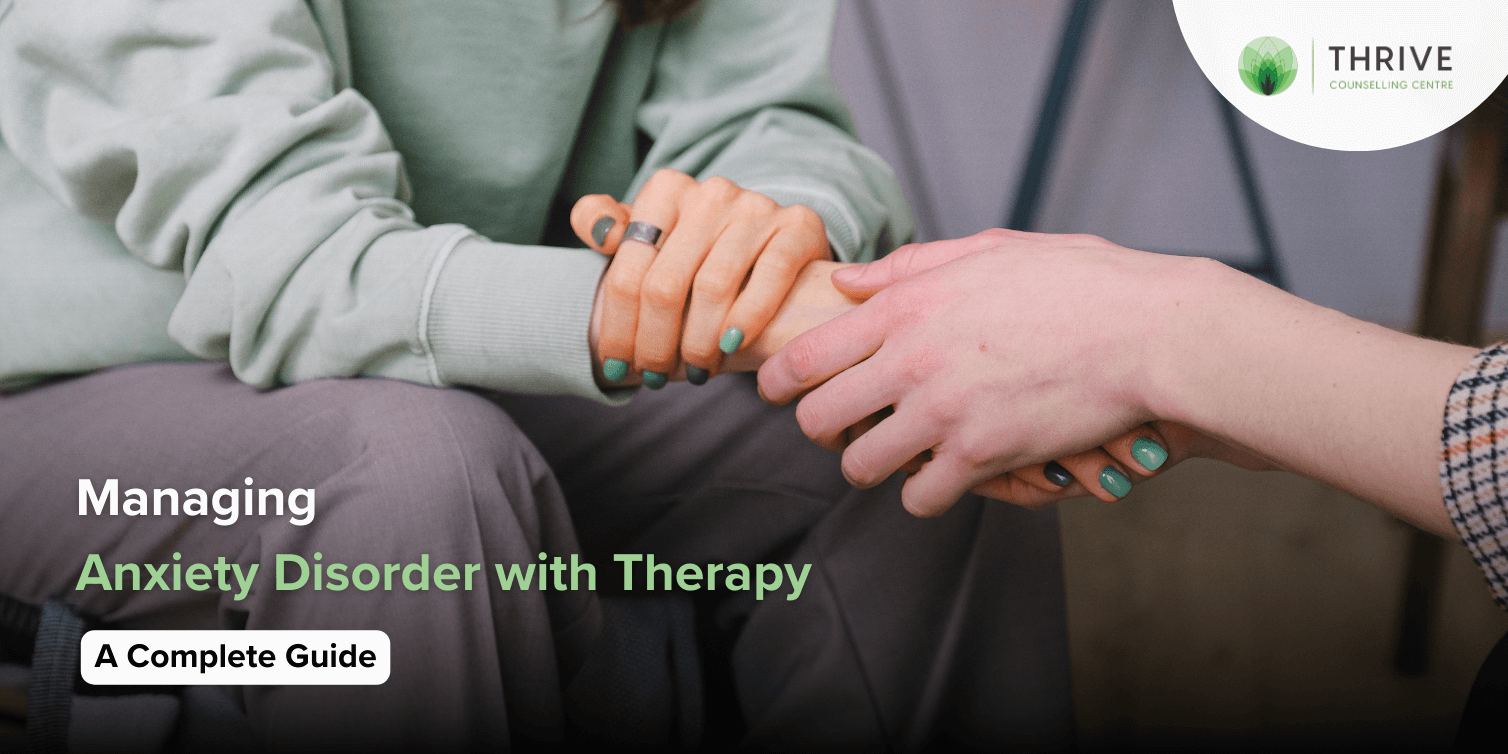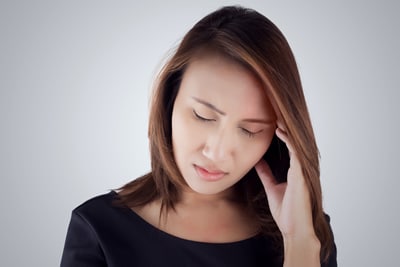Compassionate and professional therapy for anxiety designed for you
Compassionate and professional therapy for anxiety designed for you
Blog Article
Exploring Different Methods in Therapy for Anxiousness Problem for Long-term Adjustment
When taking on anxiety disorders, it's vital to explore a variety of therapy strategies. Each method provides one-of-a-kind insights and tools to assist you manage your symptoms efficiently. You may discover that incorporating strategies can yield the best results. Nonetheless, understanding the subtleties of these strategies is essential to promoting long lasting modification. What if the appropriate mix could release a brand-new level of emotional health for you?
Understanding Anxiousness Conditions: A Quick Summary
Anxiety problems, which affect numerous individuals worldwide, can substantially impact every day life. You may experience frustrating feelings of anxiety or stress that seem uncontrollable. These sensations can cause physical signs and symptoms like an auto racing heart, sweating, and even wooziness. Usual kinds of stress and anxiety conditions include generalized anxiousness condition, panic disorder, and social anxiety problem. Each has unique indicators, but they all share a propensity to disrupt your routine and relationships.Understanding the source of your stress and anxiety is vital. It may originate from genes, brain chemistry, or life experiences. Recognizing your triggers can help you manage your responses better. It is very important to keep in mind that you're not the only one in this struggle. Lots of people face comparable challenges, and seeking help is a solid step toward sensation much better. By discovering anxiety disorders, you're currently on the course to understanding and handling your condition better.
Cognitive-Behavioral Therapy: Testing Adverse Idea Patterns
In Cognitive-Behavioral Therapy, you'll start by determining the negative thought causes that contribute to your anxiousness. As soon as you identify these ideas, you'll service changing them with more positive choices. With each other, you'll build reliable coping methods to assist handle your stress and anxiety in day-to-day scenarios.
Recognizing Unfavorable Idea Triggers

Recognizing the specific triggers behind your adverse ideas can be crucial in taking care of stress and anxiety when you encounter minutes of distress. Begin by taking notice of scenarios that prompt sensations of concern or concern. Is it a crowded space, an upcoming due date, or a conversation with particular individuals? Write these circumstances in a journal. This will certainly help you determine patterns in your thinking. Notice physical experiences that accompany your unfavorable thoughts, like a racing heart or tightness in your chest. By identifying these triggers, you gain understanding right into what's fueling your stress and anxiety. Understanding these links is the primary step in testing those ideas and inevitably gaining back control over your emotional actions.
Changing Ideas With Positives
Testing adverse idea patterns is an essential action in transforming your attitude and lowering anxiousness. You may often find yourself caught in cycles of self-doubt or devastating thinking. Instead of allowing these ideas dictate your sensations, practice replacing them with practical alternatives or positive affirmations. When you assume, "I can not handle this," shift it to, "I can manage obstacles one step at a time." This basic modification can considerably impact your psychological state. Routinely recognizing and responding to these adverse ideas helps develop a healthier inner dialogue. Keep in mind, it takes some time and effort, however constantly practicing this method can result in lasting adjustment, empowering you to face anxiety with restored confidence and strength.
Structure Coping Techniques With Each Other
Replacing unfavorable thoughts is only the beginning of taking care of anxiety properly. To develop lasting modification, you require to develop coping techniques that equip you. Cognitive-Behavioral Treatment (CBT) helps you recognize and challenge those purposeless thought patterns. With each other, you and your counselor can discover exactly how these ideas effect your sensations and behaviors.Start by establishing practical methods, like journaling or mindfulness exercises, that enable you to challenge stress and anxiety head-on. When you face your anxieties slowly, you'll find out to react differently.

Mindfulness and Acceptance-Based Approaches: Cultivating Present-Moment Awareness
As you browse the complexities of anxiousness, incorporating mindfulness and acceptance-based approaches can significantly improve your capacity to grow present-moment recognition. By concentrating on the present moment, you'll find that you can observe your ideas and sensations without judgment (Counseling services for anxiety). This technique helps you acknowledge your stress and anxiety without feeling overwhelmed by it.Engaging in mindfulness exercises, such as deep breathing, body scans, or directed meditations, enables you to ground yourself in your existing experience. Acceptance-based approaches encourage you to accept your feelings instead than fight versus them. When you accept your feelings, they shed their power over you.Incorporating these techniques right into your everyday regimen can transform just how you react to anxiety. You'll create strength and find out to navigate stressful scenarios with higher convenience. Ultimately, growing present-moment understanding lays the structure for lasting change, empowering you to lead a much more meeting life
Direct Exposure Treatment: Challenging Worries Progressively
Direct exposure treatment helps you face your anxieties in a steady means, making it much less overwhelming. You'll learn strategies to encounter anxiety-provoking scenarios detailed, while likewise constructing coping strategies to handle your responses. This technique equips you to take control and decrease anxiety gradually.
Steady Exposure Strategies

When encountering anxiousness, slowly confronting your anxieties can be an effective way to reclaim control. This strategy, referred to as gradual direct exposure, includes slowly exposing on your own to the circumstances or objects that cause your anxiety. Beginning with much less intimidating circumstances and progressively work your way up to more challenging ones. If you're scared of public talking, you could begin by speaking in front of a mirror, then progress to sharing thoughts with a close friend, and at some point address a little group. Each action aids desensitize you to the anxiety, developing your self-confidence in time. Bear in mind, it's vital to pace on your own and commemorate small success as you relocate with this process, enhancing your capability to take care of anxiety successfully.
Structure Coping Approaches
Building efficient coping strategies is important for taking care of anxiousness, particularly as you face your fears progressively - Counseling services for anxiety. One effective technique is direct exposure treatment, where you start by encountering your anxieties in a controlled way. Begin with less daunting situations and slowly function your way as much as more difficult scenarios. This progressive exposure helps desensitize you to stress and anxiety activates, making them much less overwhelming.Incorporate relaxation methods, such as deep breathing or mindfulness, to soothe your mind during exposure. Track your progress, celebrating small triumphes along the means to boost your self-confidence. Bear in mind, it's all right to take your time; the objective isn't excellence yet constant renovation. By constructing these techniques, you'll encourage yourself to navigate stress and anxiety and welcome life more fully
Psychodynamic Treatment: Uncovering Source of Anxiousness
Psychodynamic therapy discovers the unconscious mind, exposing the origin of your anxiousness. By examining your ideas, feelings, and previous experiences, this strategy helps you reveal underlying problems and unresolved issues that may add to your current stress and anxiety. You'll work with a specialist to explore youth experiences, relationships, and psychological patterns that form your feedbacks today.As you get insight into these much deeper layers of your psyche, you'll begin to acknowledge exactly how past occasions influence your present behavior. This understanding can bring about catharsis, permitting you to refine emotions you might have suppressed.Through the healing partnership, you can likewise determine defense mechanisms that might have established in time, supplying a more clear course to alter. Ultimately, psychodynamic therapy furnishes you with the devices to address your anxiousness at its core, promoting enduring change in your psychological well-being.
Integrative and All Natural Methods: Combining Methods for Greater Efficiency
Integrating different healing techniques can improve your journey toward taking care of stress and anxiety better. By incorporating aspects from cognitive-behavioral treatment, mindfulness practices, and alternative strategies, you can create a tailored strategy that addresses your special demands. As an example, you may utilize cognitive-behavioral strategies to test negative thought patterns while incorporating mindfulness exercises to ground on your own in the present moment.Additionally, exploring alternative techniques such as yoga or reflection can promote leisure and lower anxiousness symptoms. This blend enables you to develop higher self-awareness and resilience.Experimenting with these diverse approaches can aid you find what resonates most with you. Remember, it's concerning discovering a synergy that works, rather than staying with a solitary technique. This integrative approach not only uses immediate relief yet likewise promotes long-term abilities for handling stress and anxiety, empowering you to reclaim control over your life.
The Duty of Assistance Systems: Structure Durability With Connection
While it could seem that managing anxiousness is a solitary journey, having a solid assistance system can play an essential duty in your durability. Surrounding on your own with compassionate pals, household, or support teams creates a safe space where you can openly share your feelings and experiences. When you connect with others, you advise on your own that you're not alone in this struggle.These relationships supply encouragement and can offer practical coping techniques that have worked for others. It's additionally a possibility to gain viewpoint; good friends can assist you see circumstances in a different way, reducing sensations of isolation.Moreover, emotional assistance promotes a sense of belonging, which can substantially ease anxiety symptoms. By leaning on your assistance system, you can develop resilience and deal with challenges a lot more efficiently. Bear in mind, connecting for assistance suggests strength, and it can make all the distinction in your journey toward handling anxiousness.
Frequently Asked Concerns
What Are the Typical Signs And Symptoms of Anxiousness Disorders?
You might experience restlessness, fatigue, difficulty concentrating, irritation, muscle mass stress, and rest disruptions. Physical signs can consist of quick heart beat, sweating, and shivering. Identifying these indicators early can aid you look for ideal assistance and therapy.
Just How Lengthy Does Treatment Typically Last for Anxiety Disorders?
Treatment for anxiousness problems commonly lasts anywhere from a couple of weeks to a number of months. It truly depends upon your private needs, progress, and the strategies your specialist makes use of to assist you manage your anxiety effectively.
Can Drug Be Made Use Of Together With Therapy for Anxiety?
Yes, medication can most definitely be made use of together with therapy for anxiety. Combining both strategies commonly improves treatment performance, aiding you handle signs while checking out underlying issues via therapy (Counseling services for anxiety). Always consult your doctor for customized advice
Exist Self-Help Techniques for Managing Anxiousness?
Yes, there are a number of self-help strategies for taking care of stress and anxiety. You can practice mindfulness, take part in regular exercise, keep a balanced diet regimen, establish a regular, and use deep breathing techniques to help in reducing stress and anxiety symptoms effectively.
How Do I Know if I Need Specialist Aid for Anxiousness?

Report this page